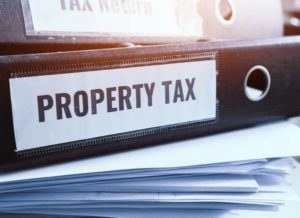What Do You Do When You Owe Taxes But Don’t Have the Funds?
For many people tax season brings the joy of a nice big refund to go out and splurge on something they’ve had your eye on for a long time. On the flip side of the equation are those people who surprisingly, or not, end up owing the IRS money. Not only do these people miss out on the extra cash influx, but they also have to come up with the funds to pay off the extra tax bill.
For some people, depending how high the bill is, they could have to pay even more than just the shortage amount. That’s because many times when people underpay they end up owing penalties for the underpayment. For those who owe a lot of money, those penalties could end up being huge. In fact, the penalties can even be much higher than the shortage.
That’s why it’s always best to try to avoid owing any money to the IRS, especially if you don’t have the funds to pay it off when the tax bill comes due. So what happens to people who can’t pay their tax bill? You do have a few options.
In some cases, it might be a good idea to take out a loan or a line of credit in order to pay off the bill. Of course, you will then be responsible to pay off the loan, so use caution. Another option is to apply for an extension with the IRS. This could buy you a little time to come up with the needed funds. If you need even more time then try applying for a hardship extension, which could give you up to six months to pay it off. You could also ask the IRS for permission to set up a payment plan to pay off the debt in installments.
Whichever path you decide to take, make sure you do something. Don’t ignore the problem or it will only get worse. The penalties will likely increase the longer you wait and the IRS could eventually take other measures or even press charges. So the bottom line is: do something.
Top Ten Tax Time Tips
Top Ten Tax Time Tips Source: IRS.gov 1/20/2009 While the tax filing deadline is more than three months away, it always seems to be here before you know it. Here are the Internal Revenue Service’s top 10 tips that will help your tax filing process run smoother than ever this year. Start gathering your records…
Mutual Funds and Tax Benefits
Mutual Funds and Tax Benefits What are the tax benefits available to those who invest in mutual funds? What are the tax liabilities, if any? Since, April 1, 2003, all dividends, declared by debt-oriented mutual funds (i.e. mutual funds with less than 50% of assets in equities), are tax-free in the hands of the investor.…
10 Ways to Cut Your Property Taxes
10 Ways to Cut Your Property Taxes By Paul W. Wilson Property taxes are decided collectively by school boards, town boards, legislators, and councils. The tax rate is set by collating the amount of funds an area needs. This is then divided by the “total taxable” assessed value of the area. The tax an individual…



